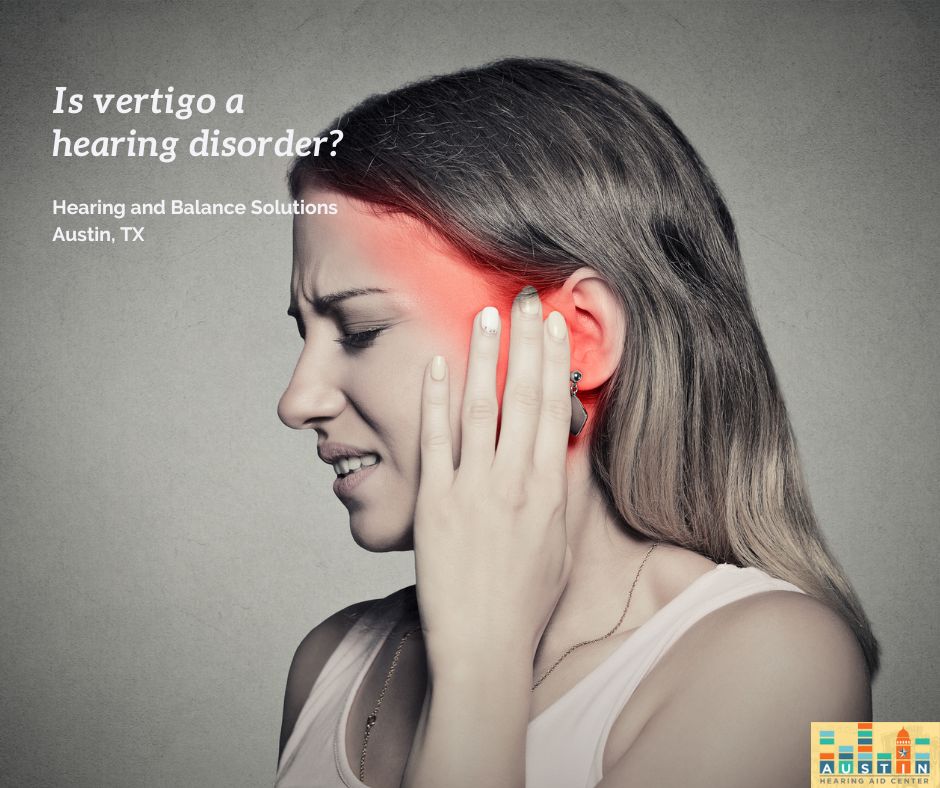Do you sometimes feel as if your surroundings are tilting, spinning, or moving, even when standing still? You might have vertigo. This condition is often associated with hearing problems, as the vestibular system is a part of our overall auditory system.
Understanding the inner ear
The inner ear contains sensory cells and fluid-filled canals that detect sound and movement. When these systems fail to function correctly, it can result in hearing problems and vertigo.
Some common causes of vertigo related to hearing problems include vestibular neuritis, Meniere’s disease, and acoustic neuroma.
Vestibular neuritis affects the vestibular nerve and causes inflammation and vertigo.
Meniere’s disease affects the inner ear, causing a buildup of fluid that results in tinnitus (ringing in the ears), vertigo, and hearing loss.
Acoustic neuroma is a growth or tumor that develops on the vestibular nerve. The growth disrupts the normal function of the vestibular nerve, leading to hearing loss and vertigo.
Treatment for vertigo widely varies depending on the underlying cause. Some treatment options include vestibular rehabilitation therapy (VRT), medication, or, in extreme cases, surgery.
VRT is one of the most common treatments to address vertigo. It is a type of physical therapy that lets the patient perform exercises to help the brain compensate for the loss of vestibular function.
Why should you not ignore vertigo?
Vertigo is commonly characterized by a sensation of dizziness or spinning, which can lead to a loss of balance or feelings of unstableness. It is very important to address vertigo as it can affect the quality of life and performance in daily activities.
Below are some factors that are on the line when you have vertigo:
- Quality of Life: If you have vertigo, you would know that the attacks are very random. You could be walking in a grocery store or crossing the street when you feel extremely dizzy to the point that you find it difficult to walk or stay on your feet. Worrying about when the next attack will be can cause stress and discomfort. Addressing vertigo and seeing a medical professional about it will help you be more at ease in your daily activities.
- Safety: Vertigo can significantly increase your risk of falls and accidents.
- Underlying Medical Conditions: Vertigo can be a symptom of an underlying medical condition, such as benign paroxysmal positional vertigo (BPPV), Meniere’s disease, or vestibular neuritis. If left untreated, these conditions can progress, leading to more complications or worsening of symptoms.
Audiologists in Austin, TX
If diagnosed with vertigo, you can still have a high quality of life – participating in your favorite activities and achieving your goals and dreams. There are various treatment options available for vertigo, depending on the underlying cause.
Vertigo treatments range from simple maneuvers that can be performed at home or in a clinic to medication or surgery. The key to dealing with vertigo is getting an early diagnosis to avoid the progression of the disease and further complications.
In conclusion, while vertigo is not a hearing disorder, it is still very much connected to hearing disorders. That being said, vertigo should be addressed promptly to prevent accidents, identify and treat underlying medical conditions, and improve the overall quality of life.
If you are experiencing hearing loss accompanied by symptoms of vertigo, make it a priority to consult with an audiologist or to get a comprehensive evaluation and appropriate treatment.
Austin Hearing Aid Center has expert audiologists who can provide hearing tests in Austin, TX. Contact us today to schedule an appointment!



